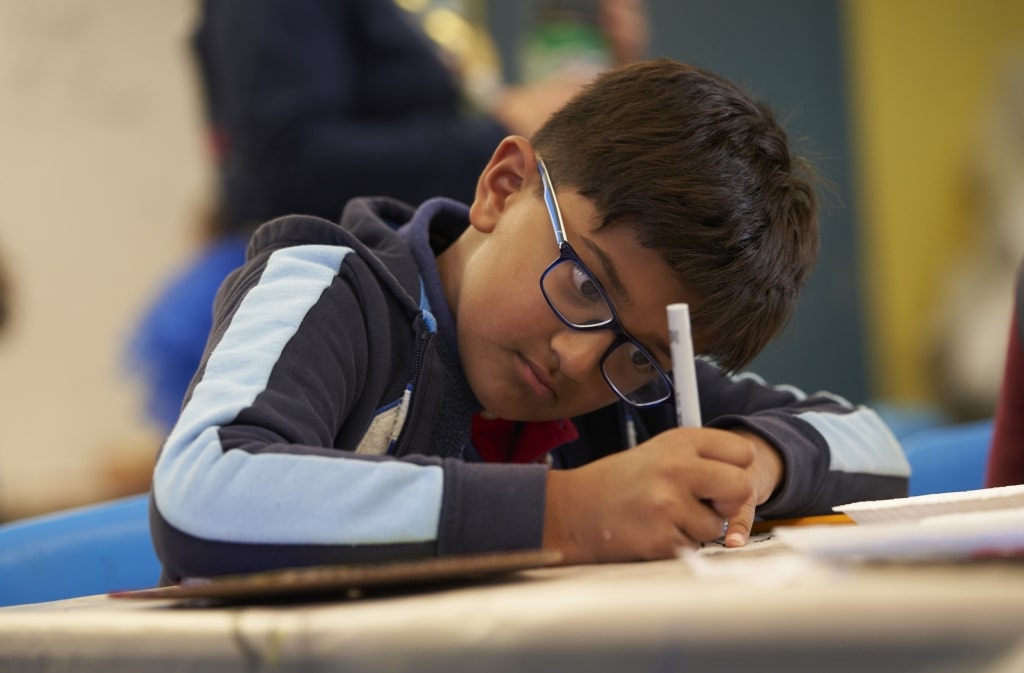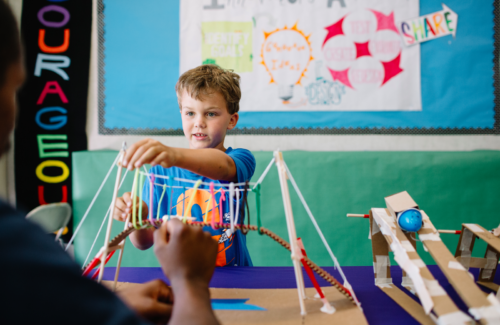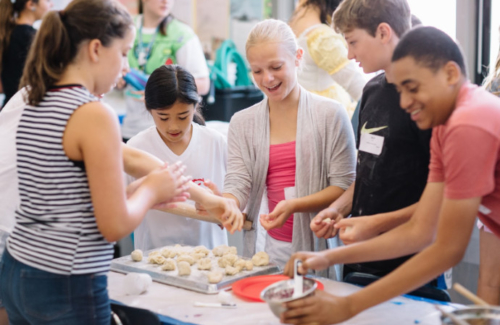Raising Determined Kids

At Galileo, we believe that innovators are determined. According to writer Paul Tough and psychologist Angela Lee Duckworth, the power of determination goes even beyond innovation. They cite “grit,” or the motivation to make sustained effort towards a goal, as much more important than academic smarts in creating success.
Whether you call it determination, grit, discipline or perseverance, we have probably all witnessed that this general notion is indeed a key thing that differentiates people. With innovation, this is absolutely the case. Very few innovators get something right the first time, and determination is required as a person or team works its way through the inevitable hurdles and failures that are part of the creation process.
At Galileo, we nurture determination in age-appropriate ways. For five-year-olds, we craft activities that last an hour or less. By third grade, we start to introduce challenges that last a few days and require greater numbers of redesigns as a group tackles more complex projects. By the time our students are entering sixth grade, they are focused on 30-hour projects that require substantial determination, even as they have fun (completing go-karts, recipes, escape rooms, and drones, for example).
When campers have the experience of creating something that does not work at first, have time to try new approaches, then experience success, they start to understand the power of determination.
This relates to a key underpinning of determination. Being determined in any situation involves a formula of sorts: Benefit of sustained effort > cost of the effort. It turns out that determined people are able to more accurately imagine the benefit of effort, and more likely to discount the value of more leisurely paths they might otherwise pursue.
How Parents Can Support
Help with the calculation.
As your kids are weighing the benefit of something that might require effort, help them truly imagine what it might be like to be able to do that thing.
For example, learning to play the piano takes a lot of practice. What would it be like to be able to play fluently? How will they feel on the other side of all this work? It may be hard for them to grasp it. Help them find their own motivation.
Break it down.
Help your kids break down goals into smaller, confidence-building steps, and visually track progress in a way that makes sense for the goal. Create a physical map of the steps that you can put up on the wall. Then recognize their determination at each step.
Name the challenge.
If they don’t have a particular challenge they are working on right now, help them find one. One of my colleagues described a time that her parents insisted that she and her sister pay their way to Disneyland by helping to clean at her mother’s office twice per week. It was hard work, but she says she will never forget how sweet that Disneyland trip tasted in the end.
Anticipate what’s next.
Help your kids predict hurdles that lie between them and their goals. Normalize the fact that there will be setbacks and pre-create strategies for dealing with them.
Acknowledge and validate.
When your kids experience frustration, acknowledge that the feeling is real. Try hard to not fall into the trap of saying something like, “Don’t be frustrated! Just keep trying!” Validate the feeling and teach them that we all experience frustration and then move past it to try again.
Set the example.
Set a goal, share it with your kids and model the behaviors above. When your kids see you struggle and then persevere, they will try to emulate that. Additionally, being accountable to each other is motivation—and a great way to “practice what we teach.”

Innovation begins with ideas but dies without determination. Make this very important trait a centerpiece of your parenting.

 How to Quit the Quitting Habit: Why Kids Give Up Too Early and What to Do About It
How to Quit the Quitting Habit: Why Kids Give Up Too Early and What to Do About It  Famous Failures: 5 Innovators Who Failed Before They Succeeded
Famous Failures: 5 Innovators Who Failed Before They Succeeded  Encouraging Courage in Kids: 8 Easy Tips
Encouraging Courage in Kids: 8 Easy Tips 